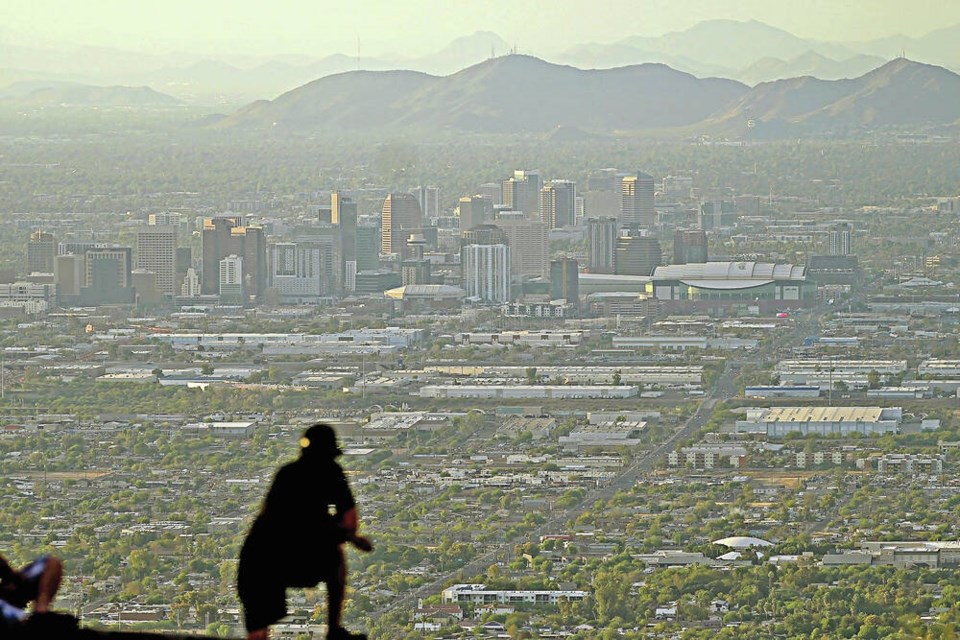If I remember correctly, last century, the junior high school English curriculum was pretty big on describing conflict in literature, such as Romeo and Juliet, The Day of the Triffids and other famous works I always meant to read before the book report was due.
Literary conflict can manifest in different ways, from a physical confrontation (“fisticuffs”) to irreconcilable differences in morals and beliefs (“city councils”). There are four main types of literary conflict, each serving a different purpose in a story:
• Man versus man
• Man versus nature
• Man versus himself
• Man versus the kitchen cutlery drawer
Of course, today we know that “man” is a bad, confusing, sexist word because it refers to only half of the population, namely the taller, more hairy half who thinks “pull my finger” jokes are A-OK.
Hahaha, sorry I was just thinking of a joke that had nothing at all to do with pulling fingers. Anyway, where was I? Oh, right: Bad last-century junior high school English curriculum. Except, maybe not, when considering future accusations and reparations.
Let me elucidate by asking you one easy question (there are no wrong answers, so long as you guess the correct one): Is it hot enough for you?
I ask because if you live in British Columbia or anywhere else on planet Earth, then yes, it is hot enough for you. From the state of your underwear, I’d say it’s too hot.
Last month, we smashed all temperature records — the previous average global temperature record of 16.92 C from 2016 was surpassed on July 3, with 17.01 C. The next day was hotter still at 17.18 C, and July 5 climbed up to 17.23 C. The trendline continued: July 2023 is now officially the hottest month in human history, and August will probably be even hotter. I wish I were making this up.
I say we smashed the record because all this hotness is manmade. We did this. Global warming is man against man, against himself, against nature, against everything, everywhere all at once.
Not to put too fine a point on it, but where there is heat, eventually there is fire. At the time of this writing, 414 wildfires are burning across British Columbia, more than half of which are out of control. Since April, 1,726 wildfires have burned more than 1.57 million hectares of land in our province. I don’t know about you, but those facts scare me. They represent expense, hassle, suffering and death.
Climate scientists believe the main reason for the heat problems we are experiencing is that it is very hot outside. It is hot because we are still pumping greenhouse gases into the atmosphere. Look it up, it’s all old science, stuff that we’ve known about for many decades but … well, you know. We’re pretty used to the ease and efficiency of our gas/coal/dinosaur-lard-powered lives.
We’re also pretty used to ignoring dashboard warning lights. For example, despite well-established science that says to keep global temperature rise from exceeding 1.5 C (the point at which there will be irreversible consequences for people and the planet), the world’s greenhouse gas emissions must peak before 2025 at the latest and be reduced by 43 per cent by 2030. Unfortunately, Canada’s oil and gas production is forecast to increase between now and 2030.
I say “unfortunately,” but that’s only because the rage- and doom-inspired words I want to use are not printable. Maybe just mentally put some of your own salty language in there, and we’ll call it done.
Not everybody thinks we have a problem. Over the years, climate change deniers and people who benefit from the status quo have landed on a few tried-and-true strategies for coping with a burning world, embracing the full gamut of human stupidity and penchant for self-destruction:
• Legal denial — deny, deny, deny, then obfuscate with irrelevant counter-claims and paperwork
• Crazy denial — embrace fringe conspiracy theories to explain away reality
• Egoistic denial — lean in to selfishness and embrace no more snow shovelling
• Hand-wringing denial — wilful refusal to think, learn and try, in favour of pretended ignorance
• Childish denial — la-la-la, I can’t hear you!
Speaking of children, one of the compounding phenomena to climate change is the natural oscillation in ocean-current temperature, mainly in the 91原创 Ocean, and its effects on atmospheric temperature and rainfall. I realize that sentence appears to have a very weak connection to children, but there are two.
First, it doesn’t explain anything, just as how I get no explanations from children for anything terrible they do to me, like wrecking all my stuff. They blink, shrug and then spill more raspberry Kool-Aid on the new carpet. No explanation.
Second, that natural oscillation is named for children — El Niño (“the boy” — watch out, he bites) and La Niña (“the girl” — she destroys your sense of self-worth and your car during the teenage years). If you are a parent there’s a good chance you’re nodding right now: Children should not be in charge of anything, let alone worldwide ocean currents that distribute heat doom, willy-nilly.
Friends, this leads me to share a possible solution to the climate crisis and heat death of planet Earth: I think we should go back to last century’s junior high school English curriculum and add another conflict to the list. No, not “man versus children.” I like how you’re thinking, but in my experience that would just encourage mommy-bloggers to reach for the nearest social media channel in which to be outraged.
My modest proposal is to create a new category of literary conflict to help us all think of plot points and counter arguments to the real villains of our story today: Man versus irresponsible, selfish people who act and think like children.
>>> To comment on this article, write a letter to the editor: [email protected]



